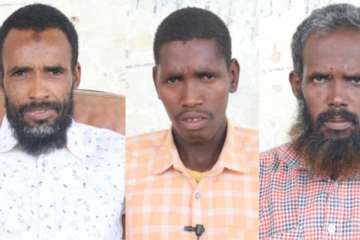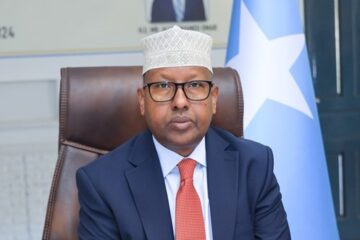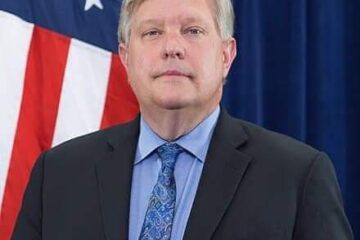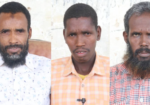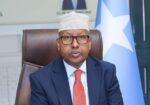Weekly wrap-up, Friday 26 April, 2024
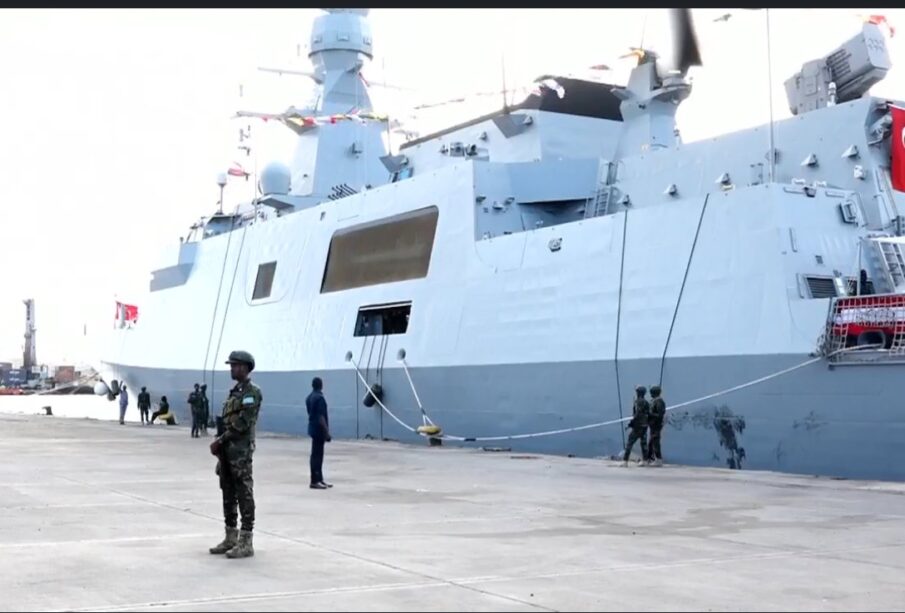
Here is a recap of the main events of the week:
Security and the fight against Al-Shabaab
On April 24th, the Somali National Armed Forces stationed at Hawadley Forward Operating Base in Hirshabelle State thwarted an attempted attack by the Al-Shabaab armed group. Acting on intelligence indicating a planned assault, the military swiftly mobilized to intercept the threat, reportedly resulting in the neutralization of several attackers by security forces.
This week in Galkayo, Somali government ministers and local elders brokered a preliminary ceasefire in Mudug Region, aiming to quell ongoing conflicts. Led by Foreign Affairs Minister Ahmed Moalim Fiqi and Transport Minister Fardowsa Osman Igal, the meeting emphasized the urgency of peace and announced plans for a follow-up session next week. Land disputes fueling the clashes have resulted in multiple fatalities, prompting a concerted effort to restore stability. The ceasefire offers hope for residents weary of violence, marking a crucial step towards lasting peace in the region.
The Somali National Army (SNA) reported on Wednesday and Thursday this week that they killed over 100 Al-Shabaab fighters in operations conducted in Mudug region. The operations targeted Al-Shabaab bases near Carfuuda and Tabar-mooge, resulting in significant casualties among the militants according to government statements. While the SNA claims progress in the fight against Al-Shabaab, independent verification of the reported casualties is necessary for a complete assessment of the situation.
The US government is suspending food rations for Somalia’s elite Danab unit amid a corruption scandal, effective June 2024. This follows an investigation revealing the theft and sale of food supplies meant for soldiers in Mogadishu markets. The suspension is a setback for Danab, heavily reliant on US support in its fight against Al-Shabaab. This incident adds to previous instances of corruption involving humanitarian aid in Somalia, including the temporary halt of food assistance by the European Union last year due to widespread theft.
Politics, Governance, Economy, and Development
This week, major world powers expressed concern over the recent Memorandum of Understanding (MOU) signed between Ethiopia and Somaliland, prompting the G7 to urge dialogue to prevent further escalation. In a joint statement, the G7 emphasized the importance of maintaining open channels of dialogue between Ethiopia and Somalia. Somalia rejected dialogue until Ethiopia revokes the MOU, emphasizing the importance of respecting Somalia’s unity and sovereignty. The MOU, aimed at establishing an Ethiopian naval base in Somaliland and allegedly recognizing Somaliland’s independence, has heightened tensions between the two nations. Ethiopia’s actions, including hosting discussions with Somalia’s Puntland region, have angered Somalia, which accuses Ethiopia of directly meddling in its internal affairs.
On April 21st, Somali Prime Minister Hamza Abdi Barre held discussions with a delegation from the EAC Parliament, to discuss the urgency of resolving issues to facilitate Somalia’s integration into the regional market smoothly. He emphasized the importance of cooperation in aligning policies, fostering a conducive business environment, and enhancing regional security measures.
This week, Somalia hosted the Invest Somali and Expo 2024 conference in Mogadishu, urging foreign investors to explore opportunities in the country’s rich resources. Prime Minister Hamza Barre emphasized the government’s efforts to attract investment for economic self-sufficiency and job creation, citing recent debt cancellation as a significant boost. The event convened a diverse array of stakeholders to network and pursue investment opportunities, despite challenges such as insecurity and climatic crises affecting sectors like agriculture. The World Bank forecasts a gradual GDP rebound and growth for Somalia in the coming years.
This week, the United Nations announced the departure of Catriona Laing, the United Nations Special Representative to Somalia, ending her one-year tenure on May 21, 2024. Laing’s tenure, notably shorter than her predecessors’, raised questions about her early departure, with criticisms surrounding her perceived prioritization of UK interests over UN duties and alleged meddling in regional Somali politics. Her exit coincides with a constitutional crisis in Puntland, where proposed amendments have sparked opposition and suspension of participation in federal institutions pending a nationwide referendum. The process to select her successor is underway, with an announcement expected next month.
Djibouti expressed disappointment over the memorandum of understanding (MoU) between Somaliland and Ethiopia, signed shortly after Djibouti hosted talks between Somalia’s federal government and Somaliland. Ilyas Muse Dawaleh, Djibouti’s Finance Minister, voiced surprise at Somaliland’s decision, emphasizing Djibouti’s support for dialogue between Somalia and Somaliland. Concerns were raised that the MoU undermined negotiations and strained relations with Somalia, leading to diplomatic tensions. Somalia reacted by expelling Ethiopia’s ambassador and closing Ethiopian consulates in Garowe and Hargeisa, highlighting broader regional implications.
During a cabinet session led by Prime Minister Barre this week, Somalia reinforced its ban on overseas government meetings and demanded international organizations relocate offices to Somalia, aiming to centralize affairs and increase efficiency. The government instructed agencies to hold inter-agency meetings within national borders, addressing concerns about excessive expenses and effectiveness. Additionally, the session discussed national security and preparations for heavy Gu’ rains, urging citizens to take necessary precautions.
This week, Somalia welcomed the arrival of a large Turkish warship as federal government leaders, including the president, participated in the welcoming ceremony. According to state media, the ship’s arrival is part of a defense agreement signed with Ankara in February 2024, aimed at safeguarding the Somali coastline and assisting in the reconstruction of the Somali navy. Additionally, Turkey announced its intention to conduct a deep-sea oil drilling operation off the Somali coast in 2025, just three days before the ship’s arrival.
Humanitarian and other issues
This week, the Gu’ rains commenced across Somalia, raising concerns about potential flooding. The National Disaster Management Agency, alongside international partners, issued warnings, indicating that the anticipated heavy rains may affect approximately 770,000 people across 22 districts. During a session on Thursday, the Somali Cabinet emphasized the importance of citizens taking necessary precautions to safeguard lives and property from the looming flood threat. Somalia remains vulnerable to the adverse effects of climate change, notably recurrent droughts and floods.
This week, the World Health Organization’s office in Somalia reported a significant reduction in malaria prevalence rates. The rates have dropped from 20.1% in 2015 to 4.1% in 2023 in the most affected areas, attributed to an integrated disease response program.

